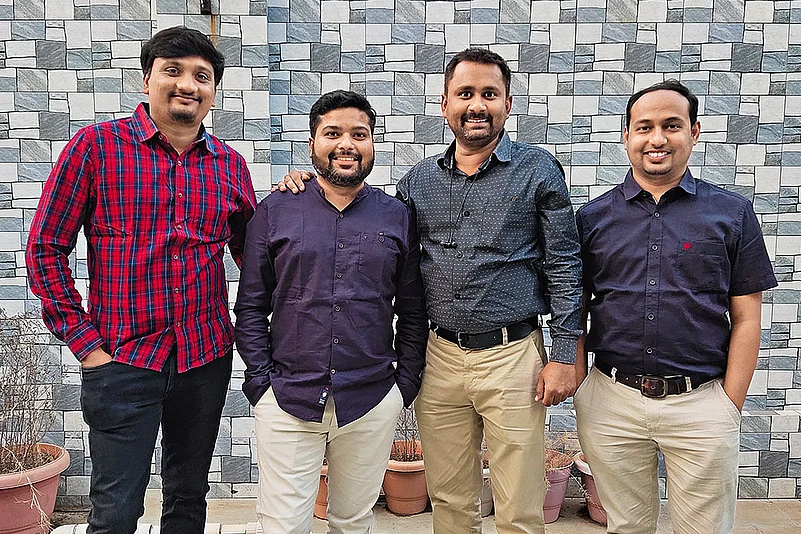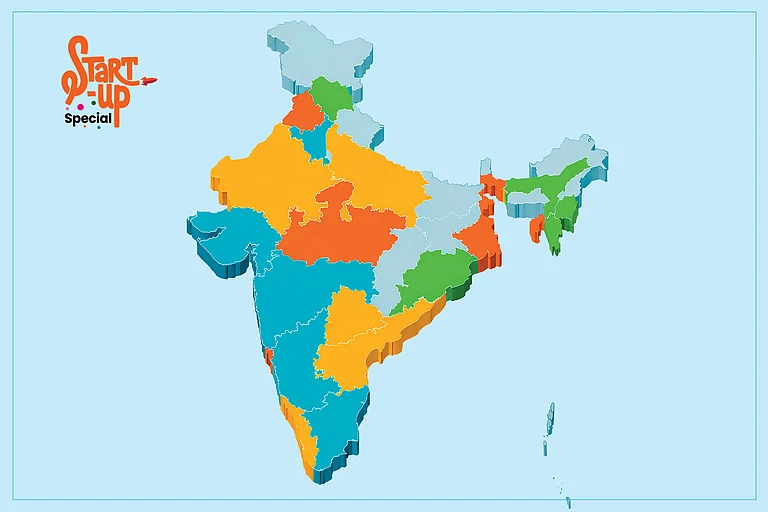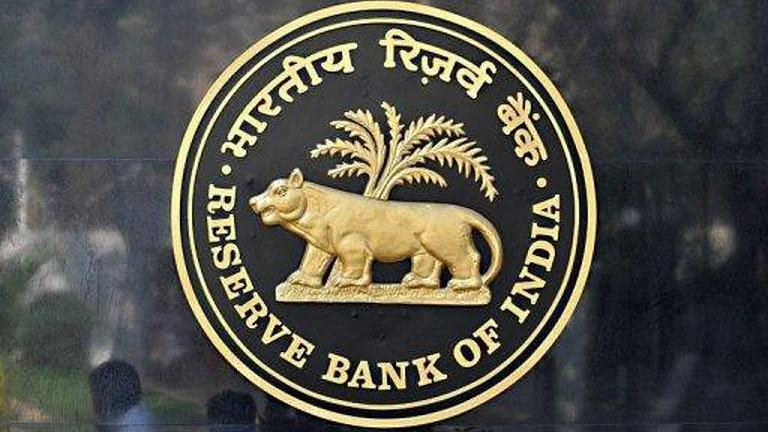A bustling start-up culture and entrepreneurial buzz are not what Amravati is typically known for. Instead, agricultural production, cotton mills and pilgrimage sites define the second-largest city in the Vidarbha region of Maharashtra.
Madhur Rathi, chief executive of the sustainable furniture company Econiture, knows this well. In 2017, when he launched a start-up with three friends, there was much uncertainty over how a new company would fare in Amravati. That sentiment has since undergone a sea change—eight years on, the company’s founders are confident they took the right decision.
But the journey has not always been straightforward. Rathi moved to Nagpur to study industrial engineering, and in 2009, moved to Bengaluru, where he worked as an assistant manager at Mahindra & Mahindra before enrolling for an MBA degree in 2012 in the southern city.
A waste-management conference that he attended during this time proved to be the catalyst that changed his career path. Inspired, Rathi moved to Ahmedabad in 2014 to work at a recycling firm, Nepra Resource Management.
Waste to Wealth
But Amravati was calling. In 2017, Rathi returned home to be closer to his family. He had valuable experience in waste management and he had the idea for a new venture. And thus Recycle Bell was born—co-founded by Rathi and his friends Roshan Pidiyar, Bhushan Boob and Ashish Modak—to collect and segregate dry waste like plastic, paper and metal from waste aggregators and sell it to recyclers.
Soon, the founders noticed that there was no product in the market that was made from waste material. After some market research, they identified a segment that would align with their initiative. A separate brand was launched under Recycle Bell the same year—Econiture, an outdoor furniture business that would produce furniture entirely from recycled plastic.

The start-up, which has a team of 45 men and 10 women, is bootstrapped, with its equity equally distributed among the four co-founders.
“We started out with waste management in 2017, dealing with about 80 tonne of dry waste a month,” says co-founder Roshan Pidiyar, explaining that segregation is crucial in waste management.
The start-up uses high-density polyethylene (HDPE) and polypropylene (PP) polymers to make furniture. “Other than these polymers, we send all other components to different recyclers. Paper waste goes to paper mills and other plastics like acrylonitrile butadiene styrene (ABS) or high-impact polystyrene (HIPS) are sent to other recyclers,” says Pidiyar.
Building Blocks
The company collects plastic waste from shops, factories and municipalities and segregates it by polymer type and colour. Once sorted, the plastic is shredded into small pieces, which are thoroughly washed and cleaned to remove impurities. After washing, the shredded plastic is dried and packed into bags.
The cleaned plastic is next extruded into moulds—a process in which the plastic is melted and pushed through a shaped opening. Once it cools down, it hardens into wood-like pieces, called plastic lumbers. The lumbers are then cut into specific sizes and shapes. Holes are drilled to prepare the pieces for assembly. Finally, the lumbers are screwed together to build furniture. The manufacturing process is chemical-free and does not use colour pigments.
The company’s USP, says Rathi, is that the furniture can withstand rain, sun and dust, unlike wooden or traditional plastic furniture, which are either unsuitable for the outdoors or uncomfortable.
But the most notable achievement has been in diverting waste that would otherwise have ended up in a landfill. “In the early days of waste management, we were unsure how to segregate and manage dry waste. Recycle Bell provided technical knowhow and purchased collected dry waste from us,” says superintendent of Bhatkuli Municipal Council, Mayur Behere.
Obstacle Race
But not all is rosy. Finding R&D talent, for instance, is difficult in a Tier-II city, says Rathi, though the company’s visibility improved after it participated on the TV series Shark Tank.
Other challenges have also cropped up. “Since this sector is an unorganised one, it is difficult to look into the waste collected from different sources because some would be of good quality while others would be of no value,” says co-founder Ashish Modak, who oversees waste management.
“Logistics was also a big challenge. In a city like Amravati, the team needed a good and reliable system to collect plastic waste from different sources. Transporting and delivering the large, finished furniture pieces made things even more complicated and raised the costs further,” adds Modak.
Retaining staff for extended periods has been difficult, says co-founder Bhushan Boob, but the founding team exudes confidence, as “after setting up the whole workshop here, we have the confidence to set up a similar setting in any part of the country”.
In financial year 2024, Econiture reported a revenue of ₹1 crore, which rose to ₹1.7 crore the next year. The company expects this number to go up to ₹2.5 crore in financial year 2026 and ₹4 crore the year after.
In the meantime, the company wants to “be a global name in sustainable and recycled products”, says Rathi. Its vision is not only to “create a substantial impact on the circular economy for dry waste management worldwide”, he adds, but also “be the market leader in recycled outdoor furniture and make a significant impact on building a sustainable everyday lifestyle”.











